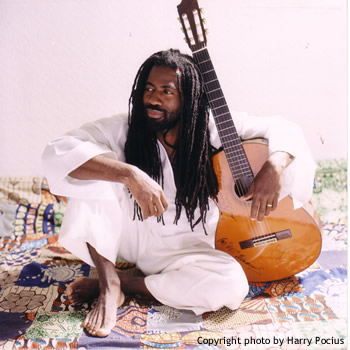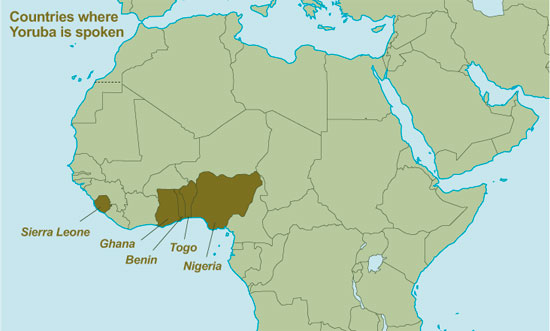|
Getting your Trinity Audio player ready...
|
Reading Time 3 mins
BDN Ajamu Interview [an update]
Update: In light of his capturing the Calypso Monarch for an historic 9th times, Big Drum Nation went back to the maestro for an update with the single question: What contributed to your remarkable success in the 2015 Grenada Calypso Monarch competition?
Ajamu [August 12]: What I think contributed to my success in this competition was experience and the will to not disappoint those who put their trust in me that I can get the job done. But most of all was knowing that my kids were really looking at me to be the best I could be so they won’t have to go through the pain of explaining why the result went which ever way.
February 26th Big Drum Nation interview
 AJAMU is one of Grenada’s most accomplished musicians. He holds the unprecedented national honor of seven-time Calypso Monarch, winning in 1987, 1988, 1990, 1991, 1992, 1995, and 2004. A certified sound engineer, AJAMU plays guitar, keyboards, and drums. He has written, arranged, and produced songs for a number of top Grenadian calypsonians. In 1997 he was crowned “Male Vocalist of the Year” at New York’s “Sunshine Awards”. Evidence of AJAMU’s recognition by the international music community is his regular entry in Billboard Magazine’s “Bible of the Music Industry”. At ease in both the soca and reggae music genres, Ajamu’s discography spans 21 albums and multiple 12” releases.Ajamu knows too well that celebrating Grenada’s independence is celebrating its people. In his patriotic tribute My Grenada, Ajamu pays homage to the centrality of human capital in building a proud nation “The standard of skills and talents we have down here in this land/it is too much for me to mention…”
AJAMU is one of Grenada’s most accomplished musicians. He holds the unprecedented national honor of seven-time Calypso Monarch, winning in 1987, 1988, 1990, 1991, 1992, 1995, and 2004. A certified sound engineer, AJAMU plays guitar, keyboards, and drums. He has written, arranged, and produced songs for a number of top Grenadian calypsonians. In 1997 he was crowned “Male Vocalist of the Year” at New York’s “Sunshine Awards”. Evidence of AJAMU’s recognition by the international music community is his regular entry in Billboard Magazine’s “Bible of the Music Industry”. At ease in both the soca and reggae music genres, Ajamu’s discography spans 21 albums and multiple 12” releases.Ajamu knows too well that celebrating Grenada’s independence is celebrating its people. In his patriotic tribute My Grenada, Ajamu pays homage to the centrality of human capital in building a proud nation “The standard of skills and talents we have down here in this land/it is too much for me to mention…”
Big Drum Nation ‘sat down’ for a cyber-side chat with King Ajamu in the midst of celebrations of Grenada’s 41 anniversary of independence.
Big Drum Nation (BDN): Who is King Ajamu?
Ajamu: Ajamu is Edson Mitchell from Mama Canne in St Andrews. Son of Lyris David and Rudolph Mitch
BDN: “Ajamu”, can you tell the origin and meaning of the name?
Ajamu: The name Ajamu is originated from Africa. It means a man who fights for what he wants.
[Editors’ note: The name Ajamu comes from the Yoruba people of West Africa, chiefly today’s Nigeria. Thousands of Yoruba came to Grenada aboard the slave ships. And many more Yoruba people came to Grenada in the 1840s. Many came from the town of Ijesha. In Grenada there were Yoruba communities at Munich, Rose Hill and Concord. In Munich, Yoruba chiefs were elected until the 1930s. Munich’s Roberts family, of which Lord Kitchener is a member, provided the last of the chiefs. African cultural retention in Grenada such as Esusu (susu), a savings institution, and Shango, the God of Thunder, Drums and Dance, are derived from the Yoruba.]

[Map of Africa: Yoruba region]. Scale not given. “Yorùbá“. <http://www.ucl.ac.uk/atlas/yoruba/introduction.html/> (25 February 2015).
BDN: What is your definition of calypso?
Ajamu: My definition of calypso is story telling in a musical form, entertaining and informative.
BDN: Calypso and soca, are they different things? How?
Ajamu: In my opinion calypso and soca is thing dressed in different outfit. A traditional calypso can be played at a faster tempo and be called soca, so it has much to do with the musical arrangements and the bounce in the beat.
BDN: How has calypso changed since the advent of the Ajamu?
Ajamu: I think calypso is still what it was before Ajamu but I might say my musicality had added something to calypso in my native country if I should say so.
BDN: What brought you calypso singing?
Ajamu: My first trip to Trinidad and my experiences in the calypso tent there had a great influence on me getting into calypso singing.
BDN: Is calypso still a story-telling form?
Ajamu: Yes calypso is still a story telling form.
BDN: How would you want us (listeners) to respond to an Ajamu song?
Ajamu: As a lover of humanity and a very passionate musician, I would like responses to both the music and messages in my songs.
BDN: Once again, you are appearing in a calypso tent (Revue): How have you been received by Trini audiences?
Ajamu: My experience at the revue and performing to Trini audiences has always been well received, i am grateful to Trinidadians and the people from all over the world for the support they have been giving me over the years.
BDN: Thank you.
